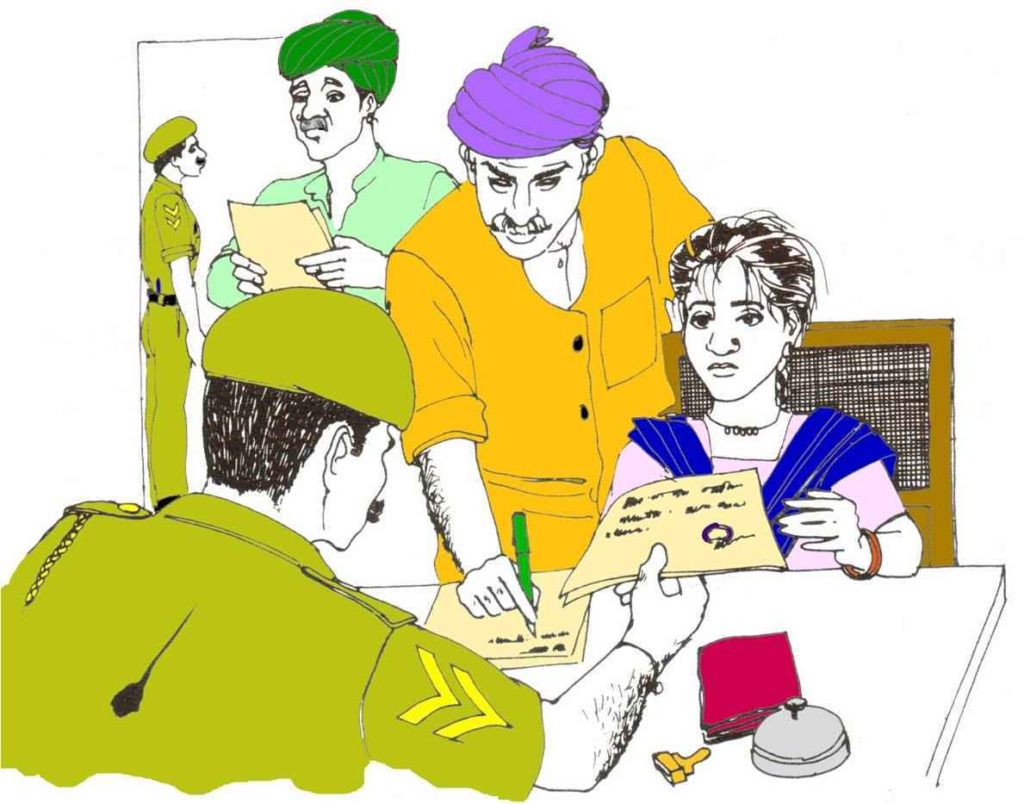 What is a First Information Report (FIR)? What remedies do I have if the police do not register my FIR?
What is a First Information Report (FIR)? What remedies do I have if the police do not register my FIR?An FIR means a first Information Report. It is generally a document in which the information about the commission of a crime is recorded. The police receives and record the information at the first point, it is known as ‘first information Report’ as per u/s 154 CrPC.
The information is generally provided by the aggrieved person, but other person can also provide the information and file an F.I.R on behalf of the aggrieved person. There is no restriction of filling an FIR in writing only, but oral message can also work in this process. On the basis of information received by the police officer motion for criminal proceeding before the courts starts.
Indian Law: How important is an FIR?
Unless and until, the aggrieved person or other person on his behalf informs about the occurrence of a crime or an offence to the police, no action is possible. It is the first step for getting justice through the police. The FIR is the primary basis on which the information reaches the police and only after registration of the FIR, an investigation can be started by police.
Indian Law: Who can file an FIR?
Any person who is aware about the offence can file an FIR. It is not compulsory that he should be an aggrieved person. Even a police officer can file an FIR, if he comes to know about any offense. The FIR can be filed by various persons like:
1. The aggrieved person.
2. The person who is aware about the fact of the crime.
3. The person who has seen the commitment of office.
What do I do if the police do not register an FIR? Remedies!
Normally, every untoward incident shall be reported to the nearest police station by the complainant; within its own jurisdiction u/s 154 of Indian Criminal Procedure Code, which shall too get registered as an FIR from the said police station before investigating in the matter begins. But, circumstances prevails when the station officer refuses to lodge your complain FIR than???
The answer to this lies u/s 154(3) and 156(3) reads with section 190(2) of Criminal Procedure Code, which is:
Under section 154(3) Criminal Procedure Code:-
After occurrence of any incident the same shall be reported to the nearest police station and upon non-compliances on such report by the station officer, under such circumstances application u/s 154(3) CrPC comes into picture with ‘any person aggrieved by the refusal on the part of an officer in charge of a police station to record the information referred to in sub-section (1) may send the substance of such information, in writing and by post, to the superintendent of police concerned who, if satisfied that such information discloses the commission of a cognizable offence, shall either investigate the case himself or direct an investigate to be made by any police officer subordinate to him, in the manner provided by this code, and such officer shall have all the power of an officer in charge of the police station in relation to that office.
Under section 156(3) reads with section 190(1) (c) (2) of Criminal Procedure Code:-
There shall too be situations when neither the station officer nor the Superintendent of police agrees to lodge your complaint (FIR); than under such situation any aggrieved person shall or could approach the Hon’ble court u/s 156(3) reads with section 190(1) (c) (2).
U/s 156(3) CrPC reads as: – Any Magistrate empowered u/s 190 may order such investigation as above mentioned.
U/s 190(1) (c) (2) CrPC reads as:- ‘Cognizance of offense’ Subject to the provisions of this chapter, any Magistrate of the first class, and any Magistrate of the second class specially empowered in this behalf under sub-section (2), may take cognizance of any offence. (c) Upon information received from any person other than a police officer, or upon his own knowledge, that such offense has been committed.
NOTE: – There are procedural methods through which one can file complaint or FIR before any station officer of your jurisdiction and on refusal or non-compliances of such action to be taken; there’re are various remedies as mentioned and discussed above which one should know and aware. And without the exhaustion of all these possible remedies available; one cannot approach the hon’ble court unless all your other remedies are exhausted.
